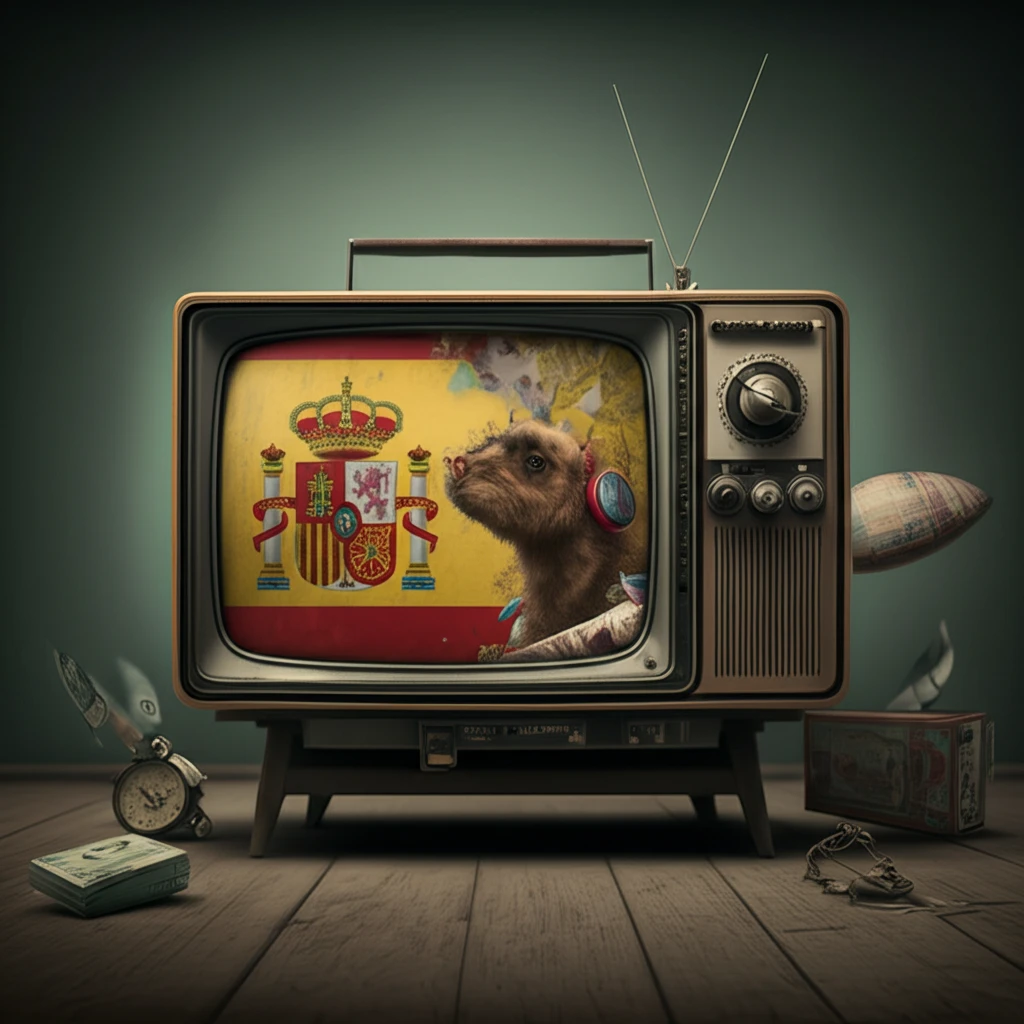
From Radio Waves to Reality TV: How Spanish Television Transformed a Nation
"Explore the surprising story of Televisión Española (TVE) and its impact on Spanish society, culture, and identity in the face of political change and modernization."
In the 1950s, television had become a primary medium in many European societies, each navigating its development under different regulatory models. Some embraced state control within social democracies, while others favored a more liberal, capitalist approach with minimal government intervention. Spain, under the autarkic regime of General Franco, found itself at odds with both models. Yet, the lure of this new medium was undeniable, promising to connect Spain to the rapidly changing world.
The Franco regime recognized television's potential as a powerful tool for disseminating its ideology and solidifying its authority. However, the inherent nature of television—its commercial appeal and entertainment value—presented a challenge to the regime's traditional values. Could television be harnessed for political purposes without disrupting the social order? This question shaped the early years of Televisión Española (TVE), as it navigated the complex terrain between propaganda and entertainment.
This article delves into the initial experiences of TVE, examining how this new medium both reinforced and challenged the existing social and political structures. From its inception, TVE became a battleground for competing ideologies, reflecting the tensions between the old guard—the Falangists, military, and clergy—and the emerging forces of commercialism, consumerism, and cultural exchange. It is a story of how a nation, long isolated, cautiously opened its windows to the world, forever altering its communicative habits and societal norms.
From Propaganda Machine to Pop Culture Icon: TVE's Balancing Act

Initially conceived as an extension of the state's radio broadcasting network, TVE was closely monitored by the Francoist administration. The government saw it as a powerful tool to disseminate its doctrines and reinforce its authority. As Arias Salgado proclaimed during TVE's inauguration in October 1956, the pillars of programming were to be "rigor and religious and moral orthodoxy, as well as service to the fundamental principles and the great ideals of the National Movement." However, this vision soon collided with the realities of a commercially driven entertainment medium.
- Censorship: Political and moral censorship was a constant presence throughout TVE's early years.
- Monopoly and Centralism: Production was centralized in Madrid and later Barcelona, with little room for regional input.
- Isolation: TVE remained largely isolated from other European television networks for many years, only joining Eurovision in 1960.
- Legislative Control: Existing radio broadcasting regulations were extended to cover television, further tightening state control.
The Seeds of Change: TVE's Enduring Legacy
The television model that eventually took shape in Spain was a hybrid between the institutional model of democratic European countries and the commercial model of the United States, with the added layer of fiscal oversight characteristic of a dictatorial regime like that of Germany under National Socialism. While the Franco regime initially saw TVE as a means to reinforce its authority, the medium's inherent appeal as a source of entertainment and its dependence on commercial funding led to unintended consequences. The values of consumerism and mass culture seeped into Spanish homes, offering a glimpse of a different world and new ways of life. In conclusion, TVE became a paradoxical symbol of the Franco regime, a force for modernization that ultimately sowed the seeds of its own destruction. By striving to modernize and endure, the regime inadvertently paved the way for its own demise, with television serving as a key instrument in this transformative process.
